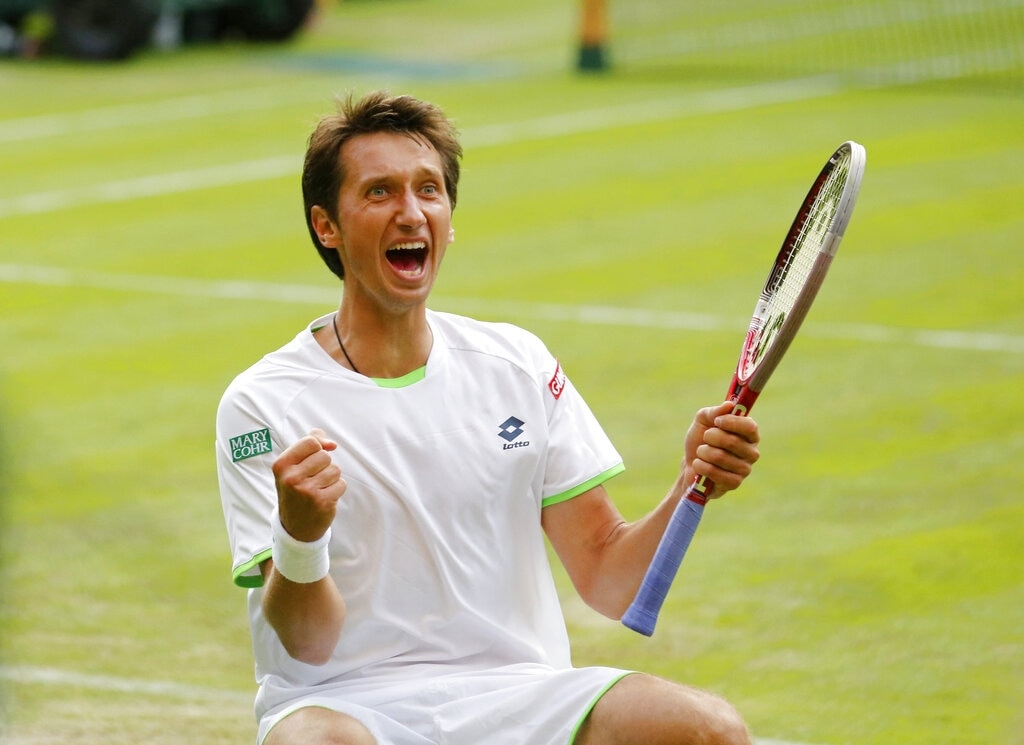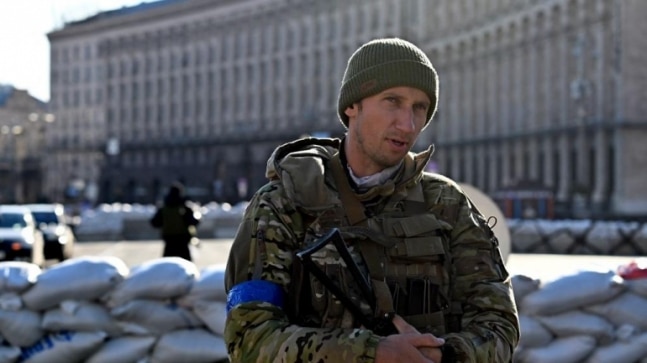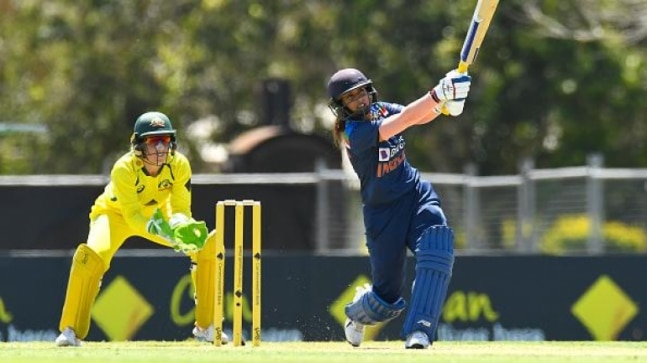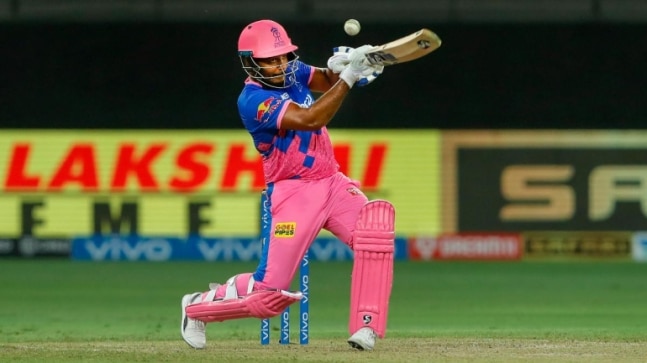In 2013 he managed one of the great shocks in tennis history when he threw defending champion Roger Federer out of Wimbledon.
Today, Ukrainian player Sergiy Stakhovsky is a volunteer fighter on a military patrol in Kyiv, which he will defend “to the end” against Russian forces.
At 36, he looks almost identical to the world-ranked 116th journeyman, sprawled in his tennis whites nine years ago on London’s sacred turf after toppling Federer in the second round.
But his outfit couldn’t be more different as he patrols Maidan Square with a Kalashnikov, a pistol in his belt and his 1.93 meters (6ft 4in) tall body clad in khaki camouflage, a symbol of Ukraine’s ‘fight for the democracy”. .
“I can’t say I’m comfortable around a gun. I’m not sure how I’m going to react if I shoot someone,” he told AFP.
“I wish I never had to deal with these things.”
It’s been just over two weeks since he returned to Ukraine and signed up for the Territorial Brigade, the volunteers tasked with helping the army against the Russian invasion launched on February 24.
“I knew I had to go there,” he says.
DESPAIR AND MISERY
On the eve of the invasion, Stakhovsky was on holiday in Dubai with his wife and three children, aged four, six and eight, having quit his racquet after the Australian Open in January.
The next day, when he saw television images of Russian bombs falling on his homeland, he said he was plunged into a mixture of “despair” and “misery”.
Most of his family still lived in Ukraine. He spent the next three days in a fog in the hotel while trying to get information about the situation on the ground and finding shelter for people
“I was full of adrenaline, I slept three or four hours (in total), I didn’t eat”.
He then told his wife he had decided to go back.
“My wife was really upset, I mean, she knew, she understood, but she was really upset,” he said. But “now she understands that I actually couldn’t help it.”
HEARTBREAKING DECISION
The heartbreaking decision haunts him every time he thinks of his family.
“I’m not proud to leave the kids,” he says.
“My kids don’t know I’m here, well they know I’m not home, but they don’t know what war is and I try not to involve them. I told them I’ll be right back, it’s been 15 days now… And God knows how many more.”
Like all Ukrainian men between the ages of 18 and 60, Stakhovsky can be called up by the army and cannot leave the country if the country is at war.
He says he finds the strength to go because he has seen his countrymen sign up “by the thousands”.
“If we don’t stand up, we won’t have a country to live in,” he said.
The former tennis pro now patrols twice a day for two hours a day to protect central Kyiv from possible infiltrations, particularly around the palace of President Volodymyr Zelenskyy, hero of the anti-Moscow resistance.
“Listen, I patrol here on foot,” he said, adding that Zelenskyy “was remarkably brave and knows what he’s doing, and we all think he knows what he’s doing.”
NEWS FROM FEDERER, DJOKOVIC

Sergiy Stakhovsky retired from tennis after the Australian Open earlier this year (AP Photo)
People from “India to South America” have sent thousands of messages of support asking how they can help Ukraine, Stakhovsky says.
Among them are “hundreds” of tennis pros who have not forgotten their former colleague, who rose to number 31 in the world rankings in 2010 and was the unofficial spokesman for young talent.
Tennis legends have also offered their support – including the man he stunned at Wimbledon, Roger Federer himself.
“He said that he wishes there would be peace soon,” said the Ukrainian, adding that Federer and his wife were trying to help Ukrainian children through their foundation.
A message that particularly touched him came from Serbian world number two Novak Djokovic.
“He experienced that when he was young, so he knows exactly what our kids are going through. So from him, that message is, I would say, more meaningful.”
As the Russians close in on Kyiv, there are fears it could suffer the same fate as devastated cities like Kharkiv and Mariupol.
“It’s disturbing,” he said, because “they don’t care if they kill a child or military personnel, they just don’t care.”




